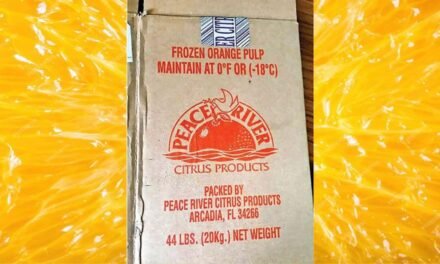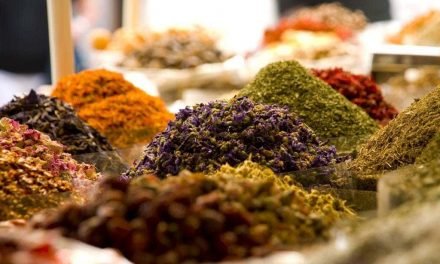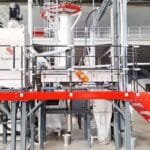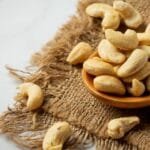Market for energy drinks in India has seen steady growth in recent years. According to industry players, the opportunity to grow in the Indian Energy Drink market is large with the penetration and consumption of energy drinks.
Table of Contents
The Indian energy drink market is rapidly growing and evolving. In recent years, there has been a significant increase in demand for energy drinks among the Indian population. This surge in demand can be attributed to the growing health and fitness consciousness among consumers, as well as the increasing popularity of energy drinks as a functional beverage.
According to industry players, the opportunity to grow in the Indian Energy Drink market is large compared with the penetration and consumption of energy drinks in the rest of developing nations. In China, the energy drink segment sales are said to be around 800 million cases, while the Vietnam energy drinks market is understood to be around 170-200 million cases. According to a Nielsen estimate, India will likely close the year with 30-35 million cases in 2022.
The Indian energy drink market is dominated by multinational companies such as Red Bull, Monster, and Gatorade. However, there has been a rise in the number of domestic players in the market who are offering unique and innovative products to cater to the diverse tastes and preferences of Indian consumers. These domestic players are leveraging local ingredients and flavors to create energy drinks that are tailored to the Indian palate. With the rise of these domestic players, the Indian energy drink market is becoming increasingly competitive.
Energy Drink Market Size and Growth
The Indian energy drink market has seen steady growth in recent years, with a compound annual growth rate of 8.5% from 2016 to 2021. As of 2022, the Indian energy drink market size is estimated to be around ₹3,500 crore ($470 million USD). The market is expected to grow at a similar rate in the coming years, driven by increasing health consciousness among consumers, rising disposable incomes, and changing lifestyles.
Some estimates suggest the market size of energy drinks in India is estimated at Rs 2,400 crore, growing at a CAGR (compound annual growth rate) of 45-50%. At the same pace, market players estimate that the category should be touching a minimum of Rs 10,000 crore by 2027, as both the premium and affordable segments are seeing good growth.
Major Players and Energy Drink Brands
The Indian energy drink market is dominated by a few major players, including Red Bull, Monster Energy, and Coca-Cola’s brand Burn. These brands account for a significant portion of the market share. However, there are also several smaller players in the market, such as Tzinga and Cloud 9, that cater to specific consumer segments.

The market is dominated by Redbull, which holds a 61% share. This is followed by Cloud 9, which holds 17% of the market. Other major players include Tzinga (Hector beverage), Sting (Pepsi Co.), Burn (Coca-cola), Power Horse and Monster, etc. Sting has captured around 7% of the market and is quite popular amongst teenagers.
While global giants such as Red Bull continue to dominate the market, domestic brands are making their mark. New entrants like BCS Globals debuts in Indian energy drink market with WOX demonstrate the vibrant innovation happening at the local level, offering affordable and differentiated options to consumers.
Top most Energy Drinks Brands Available in India:
- Red Bull
- Mountain Dew
- Monster
- Tzinga
- Glucon-D
- Sting
- Café Cuba
- Amino Energy
- Rockstar
- Burn
Consumer Demographics and Trends
The target audience for energy drinks in India is primarily young adults aged 18-35, who are looking for a quick energy boost to help them stay alert and focused. However, there is also a growing trend of health-conscious consumers looking for natural and organic energy drinks that are low in sugar and calories. This has led to the emergence of several new brands that cater to this segment.
Indian consumers are becoming increasingly mindful of what they consume. There is growing demand for healthier formulations with reduced sugar content, natural ingredients, and functional benefits. Functional foods and phyto-medicines from spices are also gaining popularity, influencing product innovation in the energy drink space.
Another trend in the Indian energy drink market is the increasing popularity of functional drinks that provide additional health benefits beyond just energy. For example, some energy drinks now contain ingredients like vitamins, minerals, and antioxidants that are believed to support overall health and well-being.
Many leading brands are now offering sugar-free and low-calorie variants enriched with vitamins, minerals, amino acids, and herbal extracts like ginseng and guarana to meet this demand. Such trends reflect a broader shift towards plant-based foods movement and clean label products in India.
Overall, the Indian energy drink market is a dynamic and growing industry that is evolving to meet the changing needs and preferences of consumers.
Government Regulations and Policies
The Indian energy drink market is subject to various government regulations and policies. The Food Safety and Standards Authority of India (FSSAI) regulates the manufacturing, packaging, labeling, and sale of energy drinks in India. The FSSAI has set specific guidelines for the maximum caffeine content and other ingredients that can be used in energy drinks. Manufacturers must comply with these guidelines to ensure their products are safe for consumption.
FSSAI has approved the caffeinated drink 75mg/250ml and has been passed by the health department of Europe as well.
Listed below are substances and the maximum amount of consumption in a single day as recommended by FSSAI.
- Taurine is limited to 2000mg/per day
- D-glucuronic-Y-lactone is limited to 1200/per day
- Inositol is limited to 100 mg/per day
- Pantothenic acid is limited to 10mg/per day.
The amount of caffeine per pack/serving must be clearly labelled. ‘Not suggested for youngsters, pregnant women, breastfeeding mothers, or individuals allergic to caffeine,’ prominently displayed in the food product’s warnings section.
The addition of Blue Tint to carbonated bottles must meet certain criteria.
Blue tint used in polycarbonate and polyethylene terephthalate (PET) plastic bottles with a capacity of 5 litres or more must comply with Indian standard IS 9833. According to IS: 9845, the quantity of pigment/colour shall not exceed 60 mg/litre.
In addition to the FSSAI guidelines, the Indian government has imposed a 28% Goods and Services Tax (GST) on energy drinks. This tax has increased the cost of production and distribution for manufacturers, which has led to an increase in the price of energy drinks for consumers.
Challenges and Restraints
Controversies and Health Concerns
Energy drinks have come under fire for controversies and health issues. Energy drinks’ high caffeine concentration can have negative consequences like elevated heart rate, high blood pressure, and anxiety. Energy drinks may potentially boost your risk of having a heart attack or stroke, according to several research.
Additionally, energy drinks are often marketed toward young people, which has led to concerns about their impact on children and teenagers. The high sugar content in energy drinks can can cause obesity, dental troubles, and other health problems.
Restraints for Energy Drinks in India
Unlike Western markets where energy drinks are often linked to nightlife, Indian consumers use these beverages for varied occasions — from gym sessions and gaming marathons to long workdays and travel. This diversified consumption has led to the introduction of convenient formats like ready-to-drink cans, energy shots, and sustainable packaging innovations that appeal to eco-conscious buyers.
Lack of awareness regarding the nutritional benefits offered by energy drinks, especially in rural areas is expected to hamper the overall revenue growth of the market during the projected period.
Rising health concerns regarding the consumption of energy drinks hinder the market growth during the projected. Energy drinks contain caffeine and high consumption of caffeine may increase the risk of a wide range of health problems, such as diabetes, poor mental health, heart palpitation, dehydration, tooth decay, substance abuse, high blood pressure, and kidney damage, which restraints the growth of the market at a certain limit.
Competition from Other Beverages
Other drinks like carbonated soft drinks, fruit juices, and sports drinks compete fiercely with energy drinks. Energy drinks have a harder time competing with carbonated soft drinks, which are still the most consumed beverage in India due to their low price and widespread availability.
Recently, sports drinks have become more well-liked, especially among athletes and fitness fanatics. With an emphasis on hydration and electrolyte replacement, these drinks are touted as a healthier alternative to energy drinks.
Diverse Consumption Occasions
Unlike Western markets where energy drinks are often linked to nightlife, Indian consumers use these beverages for varied occasions — from gym sessions and gaming marathons to long workdays and travel. This diversified consumption has led to the introduction of convenient formats like ready-to-drink cans, energy shots, and sustainable packaging innovations that appeal to eco-conscious buyers.
Marketing Strategies and Digital Engagement
The category’s growth is also being fuelled by how FMCG power brands conquer India’s complex retail network and digital-first marketing strategies. Influencers and social media platforms are playing a crucial role in shaping brand perceptions and driving trial among younger consumers.
Future Outlook
With evolving consumer needs, rising fitness culture, and innovative product offerings, India’s energy drink segment holds immense potential. Opportunities abound for brands that can tap into recent trends in food processing industry in India, harness the power of natural ingredients, and embrace sustainability to win the hearts of discerning Indian consumers.
In conclusion, the Indian energy drink market is subject to a number of laws and regulations and encounters difficulties like competition from other beverages and health concerns. To maintain the long-term success of their products, manufacturers must follow regulations set forth by the government and handle consumer concerns.
| Also Read: 5 Trends That Have the Energy Drink Industry Buzzing
References
- Brandwagon affordable rates add zing to energy drinks market, Financial Express.
- Non-alcoholic, soft-drinks and energy-sports drinks in India
Photo Credit: Pixabay/CC0 Public Domain

















